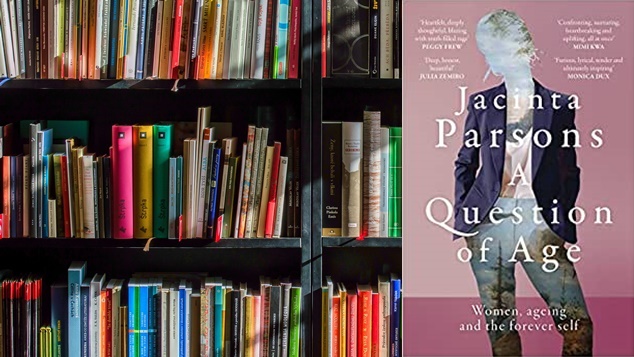
A Question of Age
by Jacinta Parsons
ABC Books
At the beginning of her book, Jacinta Parsons who currently hosts Afternoons on ABC Melbourne radio, warns that this is not a self-help book. Admitting that her book may not even be all that helpful, she reflects that no one really needs help with aging as it will happen no matter what we do.
While not a guide to the stages of aging, it does look at the fire of the maiden, the mother and the witch; the wind elements of passing through midlife and feeling betrayed by our bodies; the watery flow of secrets, friendships and regret; and the earthly reflections of the role of memory, the loss of memory and confronting our mortality.
Parsons thinks of her book on women, aging and the forever self as a howl of rage and sees aging as one of the most confronting elements of the female journey. For many women, the aging process is one that involves grieving; getting mad and pushing back against the lies they have been told.
When the outside doesn’t match the inside self, it is the perceptions of getting older imposed by the rest of the world that takes away a woman’s perceived value to society. As a consequence, decreasing notions of self-worth become associated with the loss of sexual currency and many people chase the maiden they once were.
Rather than being celebrated as an Elder, the White culture derides the witch. History tells of killing of women “who step outside the agreed path, who enjoy sexual identity that doesn’t conform, who flout rules, who expect sexual autonomy without violence, who tell secrets of what happens behind those doors of power”.
Tony Abbott endorsed his supporters who wanted to “ditch the witch” and where did this behaviour get him? The answer to that is – the next Prime Ministership, just as Donald Trump managed to defeat Hilary Clinton by naming her the Wicked Witch of the West.
Looking at her own midlife experiences, the personal becomes political as she reflects on the social and economic inequalities that have resulted in poverty and homelessness for an increasing number of women in later life. She sees midlife as when you look back and see how you were made as a woman, with the aim of looking into the future to unmake yourself “to live the life that perhaps you should be living”.
Parsons gives the reader a lot to think about as her meditation on age involves a series of questions. While she imagines that she might find answers, she thinks it is more about asking the right questions, even if they are questions that don’t immediately demand an answer.
Lezly Herbert
You can support our work by subscribing to our Patreon
or contributing to our GoFundMe campaign.






